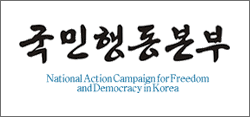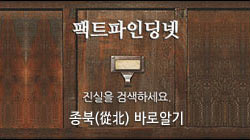*오늘 미 공군은 바그다드 주택가에 있는 한 건물을 2000파운드 정밀폭탄으로 맹폭했다. 이 건물에서 후세인과 두 아들이 회담을 하고 있다는 정보가 입수되어 신속하게 타격했다는 것이다. 후세인과 두 아들이 어떻게 되었는지는 알려지지 않았다.
이 작전은 개전 당일 미군이, 후세인과 두 아들이 지휘관들과 회의를 하고 있는 것으로 보이는 건물을 폭격한 것과 같은 성격이다. 적의 사령탑을 직격하여 지휘기능을 마비시키려는 공격법이다.
뉴욕 타임스의 보도에 따르면 후세인과 지휘부가 비밀회동한다는 정보는 CIA에서 입수하여 군지휘부로 통보했고 30분만에 B-1폭격기가 폭격을 가할 수 있었다고 한다. 이 폭격기는 당시 바그다드 상공에 떠 있었다고 한다.
미국군이 집요하게 후세인을 죽이려고 정보와 정밀폭탄을 총동원하고 있는 것을 김정일이 지켜보고 있는 심정은 어떨까.
Airstrike targets Iraqi leadership
Official: U.S. 'optimistic' that Saddam was in building
Tuesday, April 8, 2003 Posted: 2:40 AM EDT (0640 GMT)
People stand amid rubble in Baghdad's Mansour neighborhood after a U.S. airstrike.
BAGHDAD, Iraq -- The U.S. military dropped a 'large amount of ordnance' on a building in a residential neighborhood of Baghdad on Monday based on 'time-sensitive intelligence' that some senior Iraqi officials, possibly including Saddam Hussein and his two sons, were there, U.S. officials said early Tuesday.
U.S. Central Command said that at 3 p.m. Monday [7 a.m. EDT], a B-1 bomber dropped four 2,000-pound bombs equipped with JDAM guidance systems.
Central Command said the target, a building in the Mansour neighborhood, was destroyed. Before Central Command confirmed the strike, CNN sources said a blast in the neighborhood killed nine people and wounded 13 others. A restaurant and apartments were also reported destroyed.
U.S. officials said they don't know who they might have killed in the attack, but they said they believed that the intelligence -- which U.S. officials received Monday -- was very good. Part of it came from informants.
A senior administration official in Washington said the strike was 'very much the same' as the initial 'decapitation attack' that began the war and was aimed at Saddam, his two sons and other top government officials.
The official said there was a sense of optimism that top Iraqi figures, perhaps including Saddam and one or both of his sons, were in the building. The official declined to be more specific.
Bombing runs over the capital city continued Tuesday morning, with coalition forces using an A-10 and an F-14, sources told CNN.
Later Tuesday, a firefight broke out in central Baghdad between a U.S. armored unit and Iraqi forces in a high-rise building in one of Saddam Hussein's presidential compounds, Abu Dhabi TV reported.
Heavy machine gun fire was seen peppering the side of the structure, and what appeared to be blasts from a tank cannon struck the building.
Fire burned at least two of the building's top floors after the fight. The building is at least eight stories tall. Abu Dhabi TV said the fight was over the control of a nearby bridge over the Tigris River
Explosions and machine gun fire were also heard earlier Tuesday from the direction of a presidential palace, a Lebanese Broadcasting Corp. correspondent said.
Sources in Baghdad told CNN that fighting broke out Tuesday morning at another presidential palace, which the U.S. Army's 3rd Infantry entered Monday. Artillery fire was focused on one building in the compound, sources told CNN correspondent Nic Robertson, who is in Ruwaished, Jordan, on the Iraqi border. (Full story)
The palace is the largest in the city and was the site of a pro-Saddam rally Monday.
U.S. forces took over at least two of Saddam's palaces in Baghdad and were fighting near the hotel and Information Ministry before the rally began. Sources told CNN's Walter Rodgers, who is embedded with the 3rd Squadron, 7th Cavalry of the 3rd Infantry Division, that three battalions of the U.S. Army's 2nd Brigade, 3rd Infantry, plan to stay in Baghdad.
Gen. Richard Myers, chairman of the U.S. Joint Chiefs of Staff, said the entry into two of Saddam's palaces in Baghdad sends 'an important message, I think, for the regime and the people of Iraq to understand: that this regime is gone.'
At the same Pentagon briefing, Defense Secretary Donald Rumsfeld said Saddam 'no longer runs much of Iraq.' (Full story)
But standing in the smoke-filled streets of Baghdad on Monday, the ever-defiant Iraqi information minister, Mohammed Saeed al-Sahaf, refused to acknowledge the U.S. raids even as gunfire could be heard in the distance.
'The soldiers of Saddam Hussein have given them a lesson they will never forget,' al-Sahaf said. (Full story)
Coalition forces have encountered scattered resistance in and around Baghdad.
The U.S. 7th Marines Division met with Iraqi small-arms fire as it pushed farther into southeastern Baghdad on Tuesday, CNN correspondent Martin Savidge reported.
The fire came about 8:50 a.m. [12:50 a.m. EDT] as the Marines entered an industrial complex, said Savidge, who is embedded with the division. The Marines shot back with tanks and machine guns while getting air support, he said.
On Monday, an Iraqi missile slammed into the tactical operations center for the U.S. Army's 2nd Brigade, 3rd Infantry Division, in Baghdad, killing two U.S. soldiers and two journalists and wounding 15 other people, Rodgers reported. The Spanish newspaper El Mundo said one if its reporters was killed, as was a German photographer. (Full story)
As Army forces moved in from the west, U.S. Marines approached the capital from the east -- and two were killed by Iraqi forces. The 3rd Battalion, 4th Marines, came under Iraqi mortar and artillery fire as it tried to secure a bridge over a canal near the Tigris River on the southeastern outskirts of Baghdad.
Meanwhile, the discovery Monday of drums of what might be chemical weapons materials south of the Iraqi capital raised concerns among U.S. officials, who have feared that Iraq might unleash chemical weapons as troops moved into Baghdad, despite the claims of Iraqi officials that their country has no such weapons. The materials are being tested. (Full story)
Other developments
A cloud of black smoke fills the air Tuesday morning as U.S. troops attack sites in Baghdad.
• About 25 miles east of Mosul -- the largest Iraqi city remaining under regime control -- coalition forces were approaching the main highway connecting it to Kirkuk, hoping to cut off the two northern cities from each other. (Full story)
• President Bush and British Prime Minister Tony Blair see an advisory role for the United Nations in a post-Saddam Iraq, a senior Bush administration official told CNN on Monday. (Full story) U.N. Secretary-General Kofi Annan named a special adviser Monday to coordinate with Security Council members on postwar Iraq. 'I do expect the U.N. to play an important role,' Annan said.
• Rumsfeld said plans for a new Iraqi government are already unfolding, and it will be the Iraqi people who 'sort out what the Iraqi government ought to look like.' U.S. plans call for a civilian administration, headed by retired Gen. Jay Garner, to help with the transition to a new Iraqi government.
• Two Al-Jazeera reporters were wounded Tuesday when a U.S. airstrike hit a building in Baghdad that houses Arab media, the Arabic-language satellite network said. A nearby building where Abu Dhabi TV has its offices also was bombed Tuesday, but no injuries were reported.
• The Iraqi National Congress, a group that opposes Saddam's regime, said its forces have joined the military campaign. A unit called the 1st Battalion Free Iraqi Forces, made up of 700 troops, began deployment near Nasiriya in the south, and the number of forces in central and southern Iraq is expected to be swiftly increased.
• Irregular Iraqi forces, some wearing women's clothing, ambushed a U.S. Marine platoon of light-armored vehicles Monday in the central Iraqi city of Ab Diwaniyah, but the U.S. unit escaped without casualties, Marines in the firefight said.
-- CNN correspondents Jill Dougherty, Art Harris, James Martone, Tom Mintier, Diana Muriel, Walter Rodgers, Brent Sadler, Martin Savidge and Barbara Starr contributed to this report.













 조갑제
조갑제







 트위터
트위터 페이스북
페이스북 네이버
네이버



























